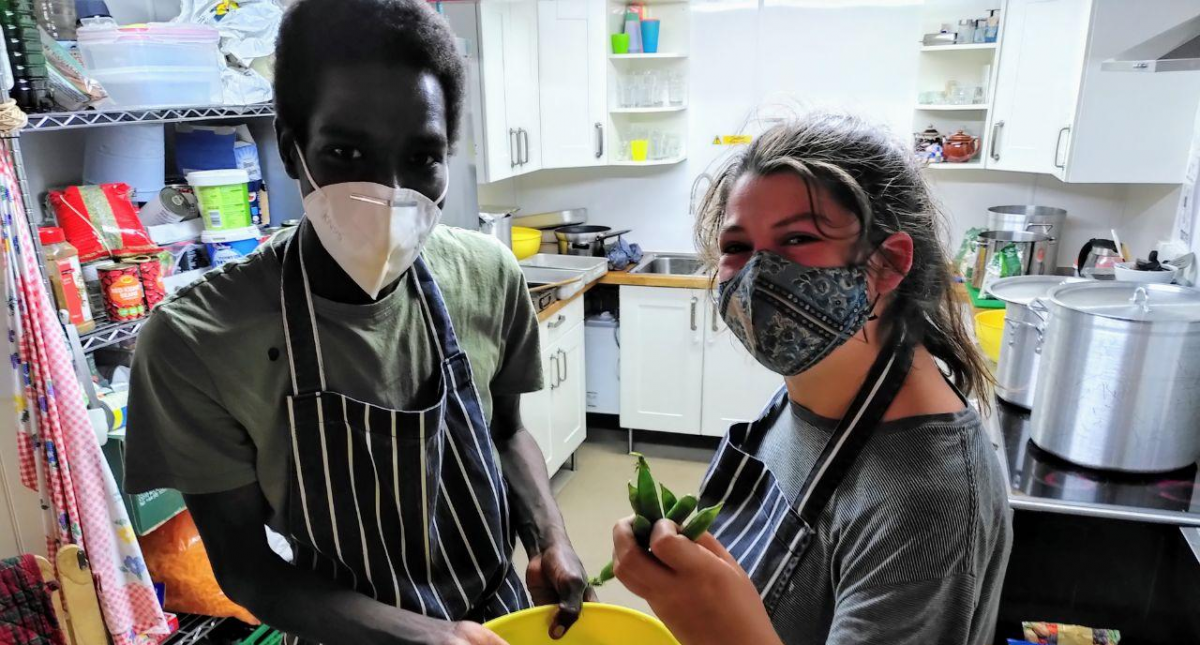UK POLICYMAKERS URGENTLY NEED TO FOCUS ON INTEGRATING FOOD WASTE POLICY WITH OTHER SOCIAL OBJECTIVES
By Isabela Vera and Jessica Sinclair-Taylor
Feedback published its policy recommendations based
on the results of FLAVOUR, an innovative project funded by the EU’s
Interreg 2 Seas Mers Zeeën 2014-2020 programme that aims to tackle food
waste while supporting inclusive jobs in the social economy. Report
authors Isabela Vera and Jessica Sinclair-Taylor explore the key
findings.
High levels of food waste in the
UK supply chain generate 5% of the UK’s total greenhouse gas (GHG)
emissions and undermine climate goals. It’s clear that for the UK to
reach ‘net zero’, food waste must be prioritised — firstly by preventing food surplus, then by supporting the food surplus sector to redistribute food waste that cannot be prevented.
In
this second area of action, policymakers have significant opportunities
to leverage the effective distribution of food surplus as a pathway to
achieving other critical social objectives. This includes supporting the
social economy and providing employment to people who face barriers to
accessing meaningful work as a result of social or economic
marginalisation.

The COVID-19 pandemic has been tough on the UK’s workers,
particularly those in the food and service sectors. As the largest
manufacturing sector in the UK, the food sector employed 4.1 million
people in 2019 (amounting to 13% of total UK employment).
The
food sector already supports some of the UK’s most vulnerable workers,
including women (who account for 56% of the positions in food
retailing), people who work part-time (accounting for over half the jobs
in the food sector), and non-national seasonal workers.
The government’s furlough scheme and job placement programmes became critical for many who lost their jobs during this time.
Although employment numbers in the UK are recovering, they’re still lagging behind their pre-pandemic levels. Policymakers should be thinking about
how to maximise the social benefits provided by inclusive employment in the food sector,
particularly in social organisations that prioritise people and
the
planet over profit. (Studies show that the UK’s social economy has an
impressive track record of sparking social change: 47% of UK social
enterprises are
led by women, 31% have directors from racialised
backgrounds, and 76% pay a real living wage.)
Inclusive employment was a goal of FLAVOUR,
an innovative food waste project funded by the EU’s Interreg 2 Seas
Mers Zeeën 2014-2020 programme. FLAVOUR has supported UK-based social
organisations like the Brighton & Hove Food Partnership and Sussex Surplus
to employ individuals from marginalised communities to redistribute
food surplus to people living in food poverty or re-valorise food
surplus into new, delicious products.
The project’s findings have been clear: while we can’t rely
on food surplus organisations to solve the problems of food waste and
food insecurity, they can provide valuable employment to people who
otherwise face barriers to accessing the labour market.
However, many organisations in
the sector struggle to access the capital they need for adequate
staffing, infrastructure, and processing facilities. They report that
hiring much-needed employees from job placement programmes (like the
now-expired Kickstart scheme) is fraught with delays and bureaucratic
hurdles.
Along with targeted efforts to
prevent food surplus from occurring, UK policymakers need to further
support the social economy, including organisations fighting food waste,
through:
- Labour market policies that account for the needs of women, non-binary, neuro-diverse, and racialised job seekers; prioritise job placements in organisations with social objectives, and streamline job placement processes as much as possible.
- Policies that underpin a thriving social economy more generally: creating a national strategy to support social enterprise (as has been done in Scotland); providing new fiscal benefits for social enterprises, and integrating information on social enterprises and food waste in school curricula and public campaigns (modelled from similar programs in France)
"FOOD WASTE FIRST NEEDS TO BE TACKELD
THROUGH MANDATORY FOOD WASTE
REPORTING AND REDUCTION TARGETS"
~ Carina Millstone
“We need to reject the ‘win-win’
scenario that suggests redistributing food surplus to vulnerable
individuals is a silver bullet for both food waste and food poverty,”
says Carina Millstone, Executive Director of Feedback. “Food waste first
needs to be tackled through mandatory food waste reporting and
reduction targets. But there are real opportunities for policymakers
to integrate policies to effectively redistribute the lower level of
food surplus that will always occur in a sustainable food system with
other
policies designed to provide employment to marginalised
individuals and support a thriving social economy.”
“The biggest current challenge we are all facing is the climate crisis,” says Gareth Hart,
an expert on the UK social economy who co-founded Iridescent Ideas CIC,
a social enterprise that aims to help other social businesses succeed.
“Social enterprises in the UK are committed to fighting it, but the social economy requires targeted government support in order to achieve its full potential.”
